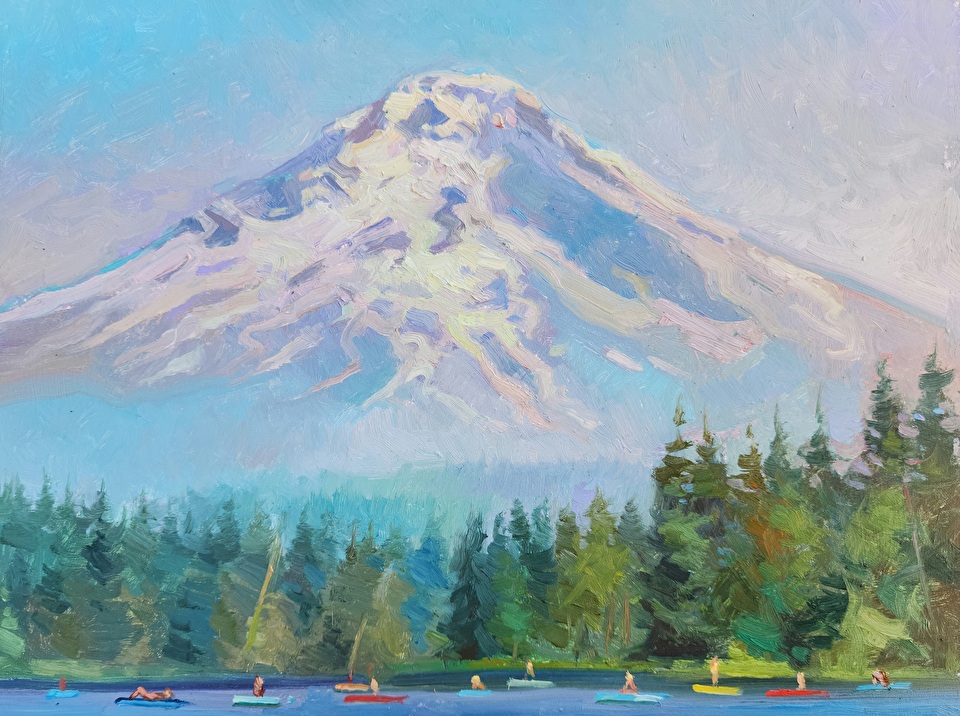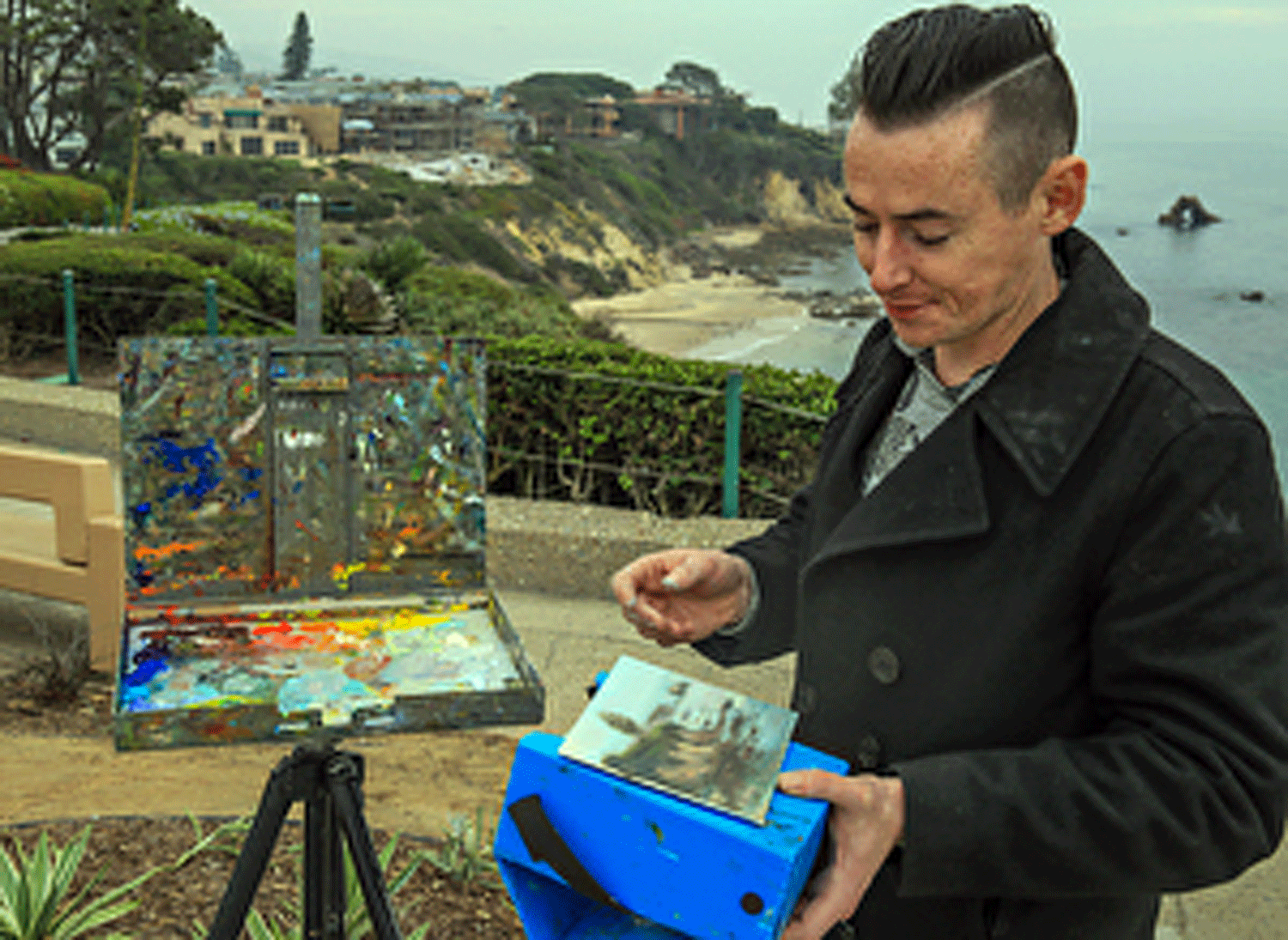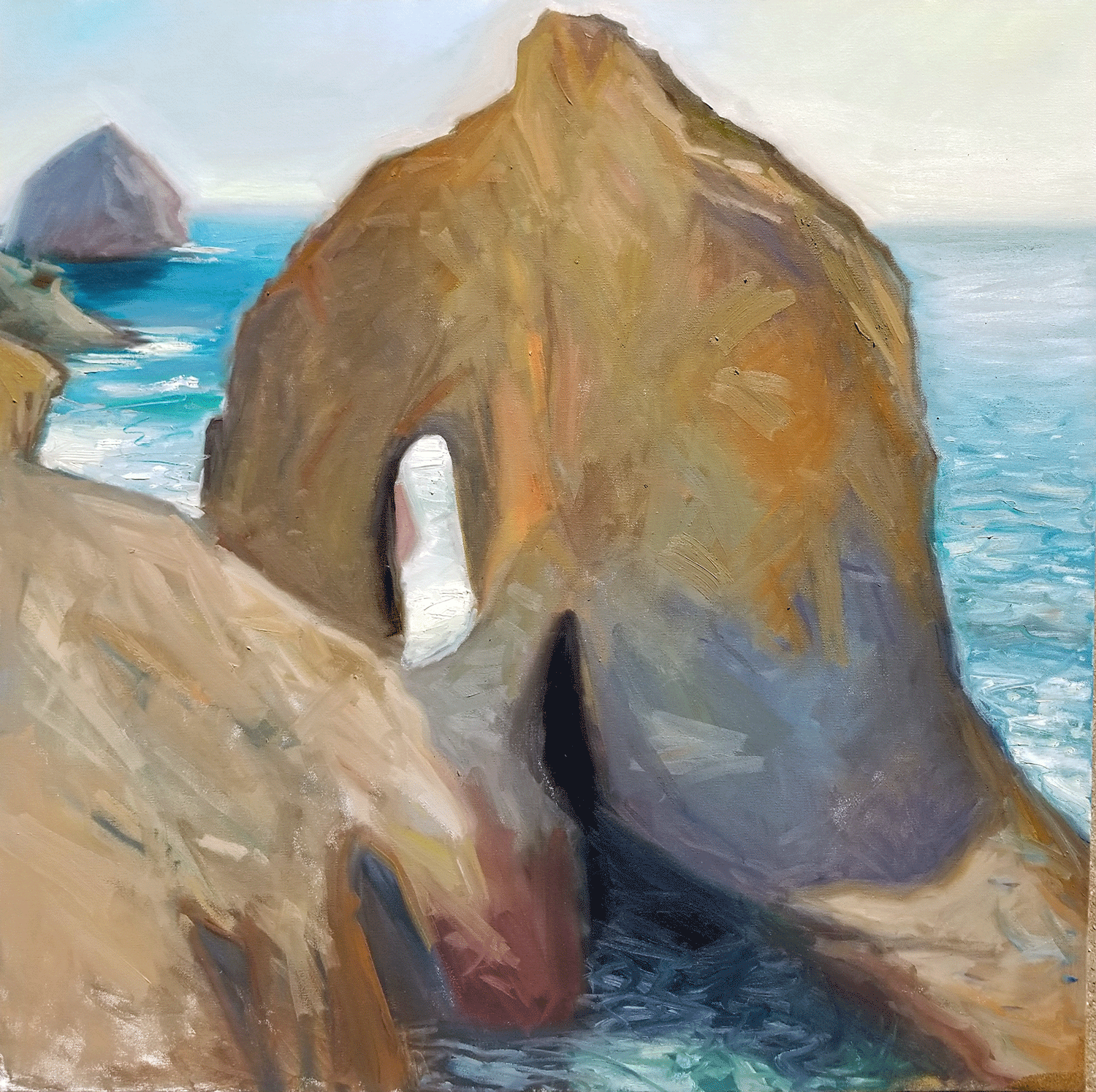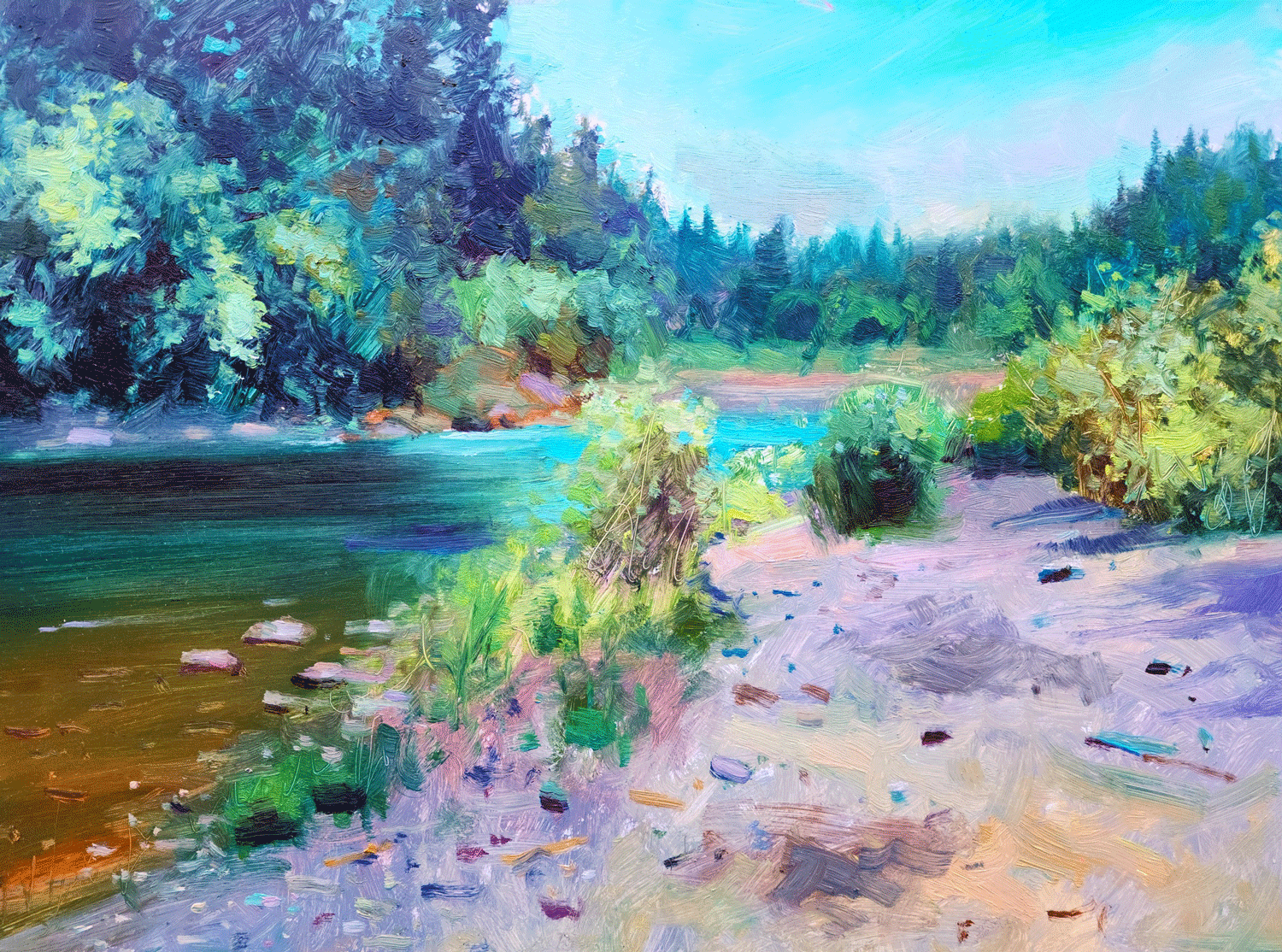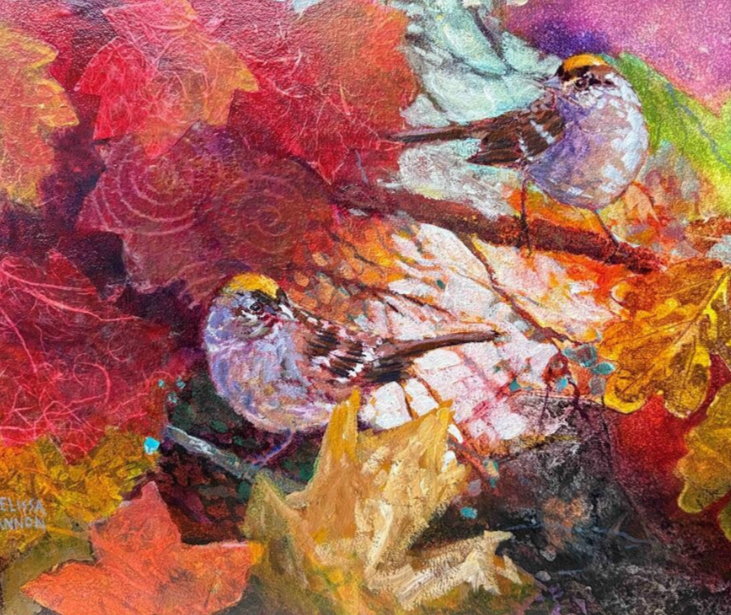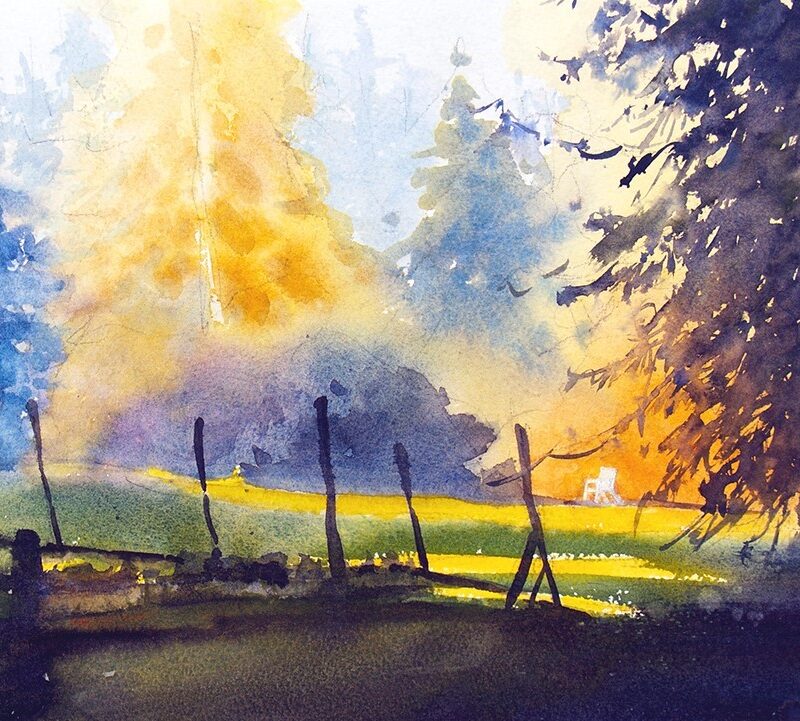Description
LANDSCAPE PAINTING from the INSIDE
Instructor: Jonathan Luczycki Mondays, Sept. 8, 15, 22
Come learn the fundamental techniques for painting a convincing landscape from a photograph, just as if you were seeing it in nature. Jonathan will start each class with a demo, going over landscape compositions, simplifying big shapes and details, and how to add value and atmosphere to your paintings to make them look more realistic. The instructor invites students either to paint along with a landscape photograph that will be projected, or to feel free to bring in a landscape photo that you would love to paint and Jonathan will show you how to simplify the image and give you tips in turning it into a beautiful painting. Demos will be done in oils. Students may choose to work in oils (traditional or water-soluble) or slow-dry acrylics, such as Open Acrylics.
Artist Bio Jonathan Edward Luczycki (Lou-ziss-key). “I was always drawing in sketchbooks and on kitchen walls as a kid.” He was the head illustrator for “The Bridge” newspaper at Portland Community College while still in high school. He received a scholarship to Laguna College of Art & Design, one of the leading art schools teaching classical ways of painting, and earned a degree in Illustration with a minor in Fine Art. He studied the early works of renowned landscape painters Edgar Payne, William Wendt, and John Carlson and quickly fell in love with painting outdoors – racing to capture the moving light on canvas like those artists before him. “My art education was a valuable tool, but nature has proven to be the best teacher out there.” Jonathan has had several solo and group shows and his paintings are found in private collections worldwide. Jonathan currently resides, and works as a full-time painter, in Portland, OR, in the beautiful Pacific Northwest.
SUPPLY LIST
Painting surface: Canvas or wood panel (or whatever surface you want to paint on. Work as large as you are comfortable working.
Paints Your choice of oils or acrylics (demos are in oils, and Open Acrylics stay wet longer than regular acrylics). I’m not strict on colors. I recommend a max. of 5 colors, such as the 3 primaries plus 2 secondary colors of your liking, and White.
Here’s an example of a warm and cool of each of the primary colors:
- Lemon Yellow, Cadmium Yellow Deep
- Cadmium Red, Alizarin Crimson (There are substitutes if you want to avoid cadmium colors because of cost and toxicity.
- Ultramarine Blue and Cobalt Blue.
Some other colors I have on my palette are:
Sap green
Quin. Magenta
Transparent brown oxide
Warm white (Gamblin brand)
Yellow ochre
Cobalt teal
Medium If painting in oils: Odorless Thinner (mineral spirits) such as Gamsol, a jar to clean brushes, and a small container of medium like linseed or walnut oil.
If painting in Acrylics: Open Medium
Brushes for oils or acrylics – flats and filberts are great. Sizes 6, 8, 10. A palette knife if you like.
Palette (or whatever you like to place/mix your paint on). For oils I use a glass palette or plexiglass.
Easel (the guild has some table easels you may borrow).
Disposable vinyl gloves if painting in oils.
Paper towels or rags – the blue shop paper towels for mechanics are great!
Sketchpad & pencil
